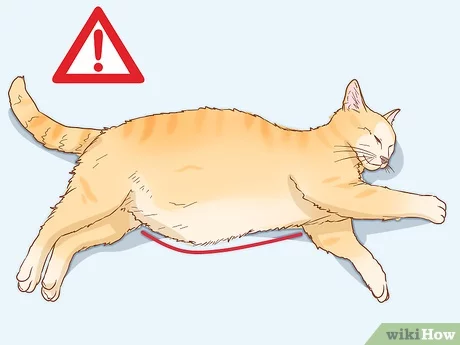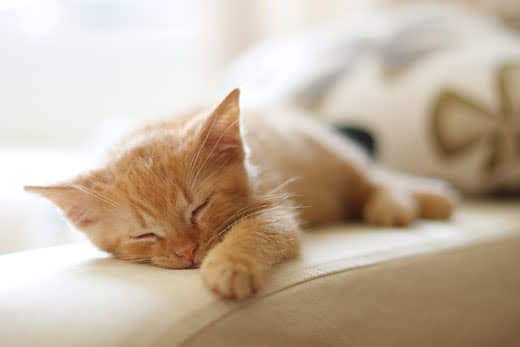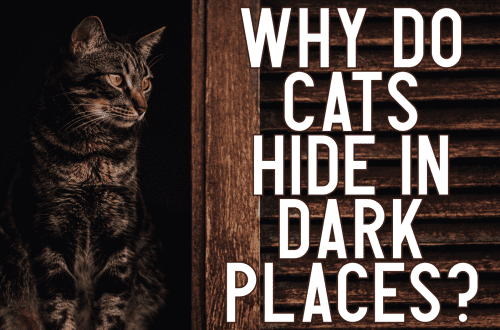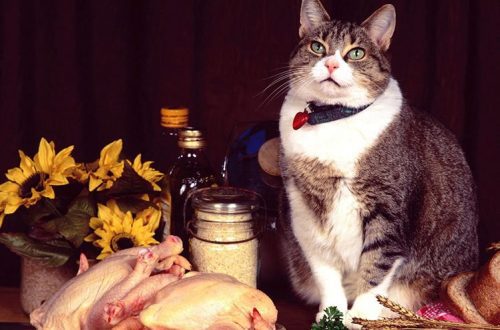
Bloated belly in a cat: causes and treatment
Bloating in cats and kittens can be caused by various reasons. Among them are an increase in organs, the presence of fluid in the abdomen, neoplasms, intestinal parasites and excess weight, and others. In some cases, your veterinarian will be able to determine the cause of your pet’s bloating during a physical examination. However, in most cases, additional testing is necessary.
Why does a cat have a swollen hard belly?
Contents
Organ enlargement
Various abdominal organs may increase in size, resulting in bloating.
Liver, spleen or kidneys
Enlargement of the liver, spleen, or kidneys can result from a benign or malignant neoplasm. This can happen either as a result of the germination of tumors in the walls of organs, or due to solitary lesions, certain types of infections (especially fungal infections), the accumulation of inflammatory cells, or a reaction to a disease in another part of the body.
Urinary bladder
An enlarged bladder and difficulty urinating can be signs of a urinary tract blockage, a potentially life-threatening condition. It is more common in males, but it also occurs in females.
Digestive tract
The gastrointestinal tract can be filled with gas, liquid, foreign material, and even food. This leads to bloating. The most dangerous of the above is blockage of the gastrointestinal tract by a foreign object.
Uterus
In non-neutered cats, the uterus may become enlarged due to pregnancy or as a result of fluid or pus accumulation. The latter can be life-threatening.
After neutering surgery, a cat may experience temporary bloating if she is too active after the operation or if she has a reaction to the stitches. Therefore, it is important that the pet rests while recovering from surgery. If the owner notices signs of inflammation, contact a veterinarian immediately.
Accumulation of fluid in the abdomen
A bloated belly in a cat or kitten may be due to the accumulation of moderate or large amounts of fluid in the abdominal cavity. Usually in such a case, the veterinarian can observe fluctuations when touching this area.
The accumulation of fluid in the abdominal cavity can be the result of many diseases:
- Hemorrhage: Bleeding into the abdominal cavity can be caused by bleeding tumors, trauma to the internal organs, a decrease in the number of platelets or their dysfunction. Another reason is poisoning with rat poison, which is called anticoagulant rodenticide.
- Cancer: A buildup of fluid and possibly blood in the abdomen may be caused by cancer.
- Heart failure: Right-sided heart failure can lead to an inability to pump blood effectively and, as a result, to the accumulation of fluid in the abdominal cavity. Any concern about heart failure should be considered urgent and should be diagnosed immediately.
- Protein deficiency: Decreased protein production is usually due to liver failure or kidney or intestinal disease. When protein levels are too low, the blood vessels in the body can begin to “leak”, causing fluid to build up in the abdomen and other parts of the body.
- Inflammation: Fluid accumulation and inflammation in the abdomen can be caused by, among other things, pancreatitis.
- Viral diseases: Feline infectious peritonitis, a viral disease in cats, usually results in fluid in the abdomen and bloating.
- Rupture of a hollow organ: A rupture of the bladder, gallbladder, or gastrointestinal tract can result in fluid from the affected organ leaking into the abdominal cavity and requires immediate veterinary attention. This pathology can occur against the background of conditions such as bladder stones and obstruction of the gallbladder or intestinal tract.
Intestinal parasites
Causes of bloating in cats may be gastrointestinal parasites, notes the Cornell Cat Health Center. This is more common in kittens, as they are more likely to be infected with worms. A veterinarian can identify intestinal parasites by taking a cat’s stool for analysis. Treatment usually includes oral antiparasitic drugs.

Formations in the abdominal cavity
Why does a cat have a bloated belly? Perhaps the pet has a neoplasm in one of the abdominal organs. These pathologies are more common in adult cats. Neoplasm in the abdominal cavity can be benign or malignant. A comprehensive examination is necessary to make an accurate diagnosis.
Depending on the site and type of growth, treatment may include surgery to remove the growth, chemotherapy, or observation and supportive care with medication.
Diagnosis of bloating in a cat
If a cat has a hard, swollen abdomen, an examination and diagnostic testing should be done to determine the cause. Common types of diagnostic testing for abdominal distention include complete blood count, urinalysis, abdominal ultrasound and/or x-ray, chest x-ray, fluid testing, and biopsy (if neoplasm). Sometimes more specific diagnosis is required if an infectious disease is suspected or an assessment of the condition of specific organs. The examination recommended by the veterinarian will depend on the individual case.
Bloating in a cat: treatment
Treatment for bloating in a cat or kitten depends on the underlying condition and may include, but is not limited to, removal of fluid from the abdomen, medication, and/or surgery. In any case, it is important to monitor the condition of the pet and consult with a veterinarian. Any physical or behavioral changes must be monitored. If an owner is worried that their cat’s belly looks bloated, the easiest thing to do is to call a veterinarian and get their expert opinion on what to do next.
Bloating in a cat: treatment
Indigestion in a cat: what to do and how to treat
Liver diseases in cats and their treatment with dietary cat food
Is your cat gaining weight?
Cat recovery after illness or surgery





